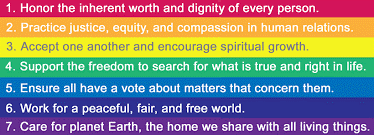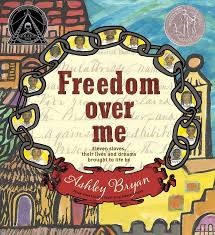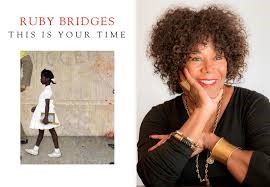Robin Mitzcavitch, Director of Religious Exploration and Education

The election is “somewhat” over and many of us are feeling strange. I’m aware of my gut reaction, almost guilty to feel relief because of the realities that still exist. The fact is- there is a disparity in the numbers of people who still don’t want to acknowledge the systemic racism in this country. Things are heavy and loaded. We just want to be happy, but there is so much work that needs to be done yet. There is damage that we must mop up and patch up. What can we do?
I don’t have the answers, but I will continue with my promise to offer a Religious Exploration curricula that is committed to lifting up our UU principles and values. The principles give me the direction and strength to keep speaking about how we can be strong allies and how we can try to change the vitriol that is weighing our country down. I hope to empower, even one person at a time, with the ability to feel the freedom to speak up. I hope to do so by illuminating the realities of our history and how they carry into present times.
Instead of just teaching about the past horrors of slavery, I want to allow kids to understand the unique individuals who had to live within it. They were human beings, not just faces and chapters in a school book.
We are currently exploring the book “Freedom Over Me.”

Author Ashley Bryan does a remarkable job imagining and honoring the story of 11 enslaved people in history.
““Using real documents from an estate appraisal dated July 5, 1828, Bryan has created beautiful portrait paintings for 11 people who were named and priced as property on the Fairchildses’ estate (the documents are reproduced fully in the endpapers and in segments throughout the work). Relying on narrative poetry to explore each figure’s inner and outer life, Bryan gives voice to their history, their longing for freedom, and their skills as artisans, cooks, musicians, carpenters, etc. Each person has two visual portraits, with each accompanied by a poem (on the opposite page). Collaged historical documents of slave auctions fill the negative space of the first portrait frame. The second portrait depicts that person in a private dream, often a dream for safety, family, community, or the freedom to create. Peggy, a self-taught expert herbalist and cook for the Fairchildses, knows that although she works hard, everything goes to the estate. She dreams of her Naming Day ceremony and her parents calling to her, “Mariama! Mariama!””
~ Teresa Pfeifer, The Springfield Renaissance School, MA
In honor of “Peggy” the herbalist, our children will make herb/spice sachets. Maybe our children will remember that the people who colonized the USA and took away the freedom of human beings, could never entirely take away personalities and dreams, no matter how hard they tried. Maybe our children will remember that humanity is humanity. All are entitled to freedom, yet here we are in 2020 still grappling with the fact that we need to fight for it.
Just released is a new children’s’ book authored by Ruby Bridges entitled, “This is Your Time.” That iconic image of Ruby walking to school in 1960 ushered by U.S. marshals isn’t just a Norman Rockwell painting. Ruby is still alive and speaking to her experience. In this book, she lays it out straight- segregation may seem like something in an old painting or in history books, but it remains in new shapes and sizes to this day. When we read this book together, our children will be able to empathize with Ruby as a 6 year old child whose only dream was to go to school, learn, and play like everyone else. She did so amidst a sea of shouting faces- the angry white parents who lined her path to the schoolhouse. I empathize with her parents, her mother, Lucille, who I’m hearing as I write this has passed away today at age 86. Her father, Abon, couldn’t escort Ruby to school because, as a young black man, he was a target for violence himself during this time. We can learn to empathize, but can’t truly know unless we personally had to fight for the freedom of an equal education. It’s hard to know what we don’t know.

Ruby is quoted in a recent NPR interview:
“None of our babies are born into the world knowing anything about disliking one another, or disliking someone because of the color of their skin. Babies don’t come into the world like that. And so if babies are not born that way, then we as adults are the ones who are passing it on to them, and we have kept racism alive.”
As a white woman in America, I am free to do whatever I like. I am free, and no one has the freedom over me. I need to breathe into that statement and use my privilege to speak to others. I can share what I read and excite people to do the same. I hope to make a difference in that small way.
The election is “somewhat over” but the work is stacked up. Let’s not unroll our sleeves or take off the gloves. I want to keep the momentum to ensure that for every person who stood for hours in line to vote, who worked the polls, and for every person who sent postcards, made phone calls, raised money, that their time is honored and not put to waste. For every enslaved person, like Peggy, for every young person like Ruby, for every family who has lost someone to violence, COVID, and other consequences of systemic racism, their stories need to be kept in the forefront. Together, with sustained energy, perhaps we can work toward healing and reconciliation. We need strong numbers to turn out now to advocate for true change and real freedom for all.
